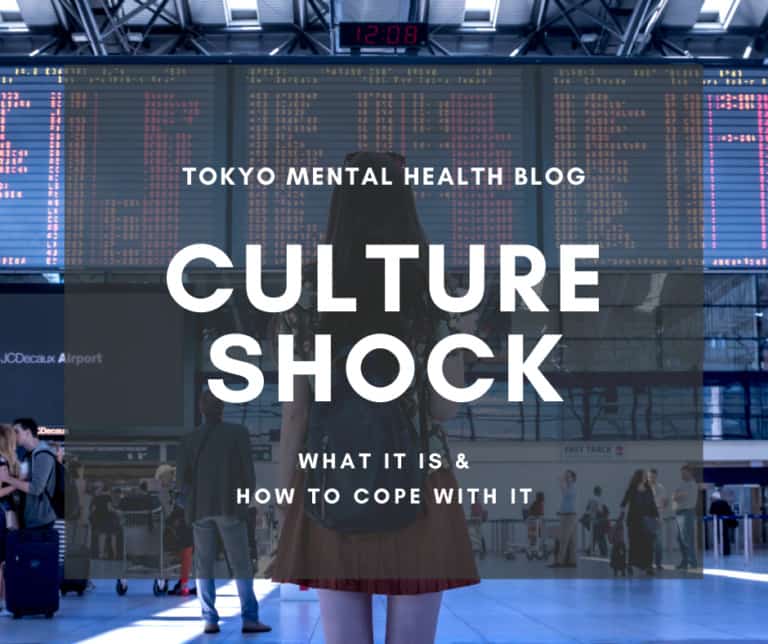- 2021/12/29
- Expat Resources

Whether it is adapting to food that is completely different from home to navigating subtle social cues, adjusting to life in a country you’ve moved to can be very challenging. An expected and normal part of that process is culture shock, in which you may find yourself feeling lost, isolated, and irritated while trying to adjust to the realities of your new country.
Like every nation, Japan is a country with a unique culture, history, and society that comes with its own set of norms and behaviors that may or may not be different from those of your own culture. Experiencing culture shock after moving here is an incredibly common phenomenon, and is part of a larger process of cultural adjustment that, if navigated with patience, can help you to successfully adapt to a new culture.
The Stages of Cultural Adjustment
Adapting to a new culture is not an instantaneous process. For most people, cultural adjustment usually happens in several stages, including:
Romanticizing or idealizing your new country
Prior to and shortly after your move, you may be filled with excitement and ready to dive into a new culture. However, you may also set unrealistic expectations for yourself and the culture during this time.
Developing frustrations
When the initial excitement wears off, you may start to notice the everyday struggles of adapting to a new culture more. Because each society has its own way of doing things – from how to make doctor’s appointments to how to deal with delays in public transportation – it is common to feel irritated at new systems that may seem confusing and complicated.
It is common for those feelings of frustration to develop into culture shock, where you feel alienated, angry, or overwhelmed when navigating daily life in your new country. Several of the most common signs of culture shock include:
- Withdrawal and self-isolation
- Getting easily irritated or angry over small inconveniences or cultural differences
- Feeling sick, including a loss of appetite, an upset stomach, and body aches
- Depression and anxiety
- Being overly critical of the norms, customs, and behaviors in the local society
- A persistent longing for your home country or culture
Adjusting and Adapting
With time and support, you begin to feel a sense of place and belonging. You develop a better understanding of norms, social cues, and behaviors. Small inconveniences, problems, and differences are more easily navigated. You develop a realistic outlook on your new country, and view both its strong points and societal challenges with greater objectivity.
How to Cope with Culture Shock
Although dealing with culture shock can be the most difficult part of the cultural adjustment process, there are several ways to help you grapple with it, including:
- Don’t be hard on yourself. Culture shock is a very common experience, and experiencing it does not mean you will feel that way forever.
- Work on your language skills if necessary. Improving your language skills will equip you with confidence, give you a better understanding of the people around you, and decrease the amount of isolation you may experience.
- Learn more about the local culture and history. Reading about Japanese history and culture may also help give context to traditions, behaviors, and norms that you may struggle to understand.
- Get outside and explore the natural world. Establishing a connection to your local environment is a great way to start feeling at home and invested in your community. Tools like iNaturalist are great ways to start learning about what is living and growing around you, participating in citizen science projects, and connecting to other nature-minded folks in the area. Try it out in one of your local parks!
- Find and connect with others who share similar backgrounds, interests, and experiences. Meetup is an excellent way to find others in Japan who may share your background or interests. It is also a great way to meet locals who can help enrich your understanding of Japanese culture and society.
- Get support when you need it. Stay in touch with loved ones, whether they are back at home or in Japan with you. If you need additional support, do not hesitate to reach out to us and book an appointment with one of our English-speaking counselors and psychologists in Tokyo, Okinawa, or online.